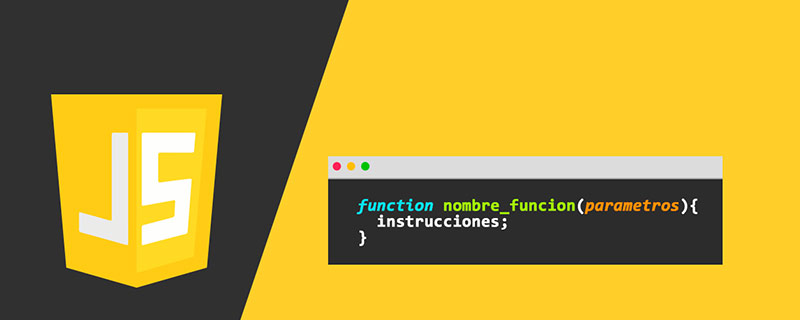
Related recommendations: "nodejs Tutorial"
Most people know what the require() function in Node.js does, but there are How many people know how it works? We use it every day to load library packages and modules, but its internal behavior is mysterious.
We are pursuing the core of Node module system: module.js. This file contains a surprising magical function. It is responsible for loading, compiling and caching each used file. Let us unveil its mystery. .
function Module(id, parent) {
this.id = id;
this.exports = {};
this.parent = parent;
// ...This Module type can be found in module.js and plays two main roles: First, it provides a basic functionality for all Node.js modules to build an instance when it is loaded from its file, even in the file Runtime persistence, that's why we can add some properties to module.exports and return them when needed.
The second thing of module is to handle the loading mechanism of Node module. The standard require function is actually based on the abstraction of module.require. The latter is just a simple wrapper for Module._load. The loading method handles each The actual loading of the file. Take a look at its code as follows:
Module._load = function(request, parent, isMain) {
// 1.在Module._cache中检查模块是否被缓存
// 2.如果缓存中为空,创建一个新的模块实例。
// 3. 保存到缓存
// 4. 使用指定的名称调用module.load()
// 在读取了文件内容后将调用module.compile()
// 5.如果加载和分析文件时有错误
// 从缓存中删除坏的模块
// 6. 返回 module.exports
};Module._load is responsible for loading new modules and managing the module cache. Caching each module can reduce the frequency of file reading, thus improving performance. Shared module instances allow like a single Save state across applications like an example module.
If a module does not exist in the cache, Module._load will read the file and create a new one. After successfully reading the file content, module._compile will be called
If you pay attention to the sixth step above Step 1, you will see that module.exports is returned, which is why when you define the public interface, you can use exports and module.exports, because they are indeed returned by Model._load and require.
Let’s take a look at module._compile:
Module.prototype._compile = function(content, filename) {
// 1. 创建调用模块需要的require标准函数
// 2.将其他帮助方法加入require.
// 3.包装JS代码到一个函数,这个函数提供我们的require
// 模块, 比如变量本地化到模块的作用域
// 4.返回这个函数
};The magic happens here. First, a special standard require function will be created. This is the require() function we are familiar with. When the function itself Wrapping Module.require, it also contains some helper properties and methods that few people know, such as:
require(): Load an external module
require.resolve(): Resolve the module name according to its absolute path
require.main: The main module
require. cache: All cache modules
require.extensions: File-based extensions available for compiled methods.
Once require is ready, the entire source code will be wrapped into a new function. This function takes the require module and exports and other exposed variables as parameters. This creates a new function of the module. scope so that it doesn't pollute the rest of the Node.js environment.
(function (exports, require, module, __filename, __dirname) {
// YOUR CODE INJECTED HERE! 你的代码在这里
});Finally, the function that wraps the module will run, and the entire Module._compile method will be executed synchronously, so that the original call to the Module._load method will wait for this code to run before it completes and returns to module.exports to users.
Now, we already know how require('module') loads the module you define through the module system. The module.js source code contains more code principles. You can discover more if you are interested.
For more programming-related knowledge, please visit: Programming Teaching! !
The above is the detailed content of How does require() work in Node.js? Introduction to working principle. For more information, please follow other related articles on the PHP Chinese website!
 Vercel是什么?怎么部署Node服务?May 07, 2022 pm 09:34 PM
Vercel是什么?怎么部署Node服务?May 07, 2022 pm 09:34 PMVercel是什么?本篇文章带大家了解一下Vercel,并介绍一下在Vercel中部署 Node 服务的方法,希望对大家有所帮助!
 node.js gm是什么Jul 12, 2022 pm 06:28 PM
node.js gm是什么Jul 12, 2022 pm 06:28 PMgm是基于node.js的图片处理插件,它封装了图片处理工具GraphicsMagick(GM)和ImageMagick(IM),可使用spawn的方式调用。gm插件不是node默认安装的,需执行“npm install gm -S”进行安装才可使用。
 一文解析package.json和package-lock.jsonSep 01, 2022 pm 08:02 PM
一文解析package.json和package-lock.jsonSep 01, 2022 pm 08:02 PM本篇文章带大家详解package.json和package-lock.json文件,希望对大家有所帮助!
 怎么使用pkg将Node.js项目打包为可执行文件?Jul 26, 2022 pm 07:33 PM
怎么使用pkg将Node.js项目打包为可执行文件?Jul 26, 2022 pm 07:33 PM如何用pkg打包nodejs可执行文件?下面本篇文章给大家介绍一下使用pkg将Node.js项目打包为可执行文件的方法,希望对大家有所帮助!
 分享一个Nodejs web框架:FastifyAug 04, 2022 pm 09:23 PM
分享一个Nodejs web框架:FastifyAug 04, 2022 pm 09:23 PM本篇文章给大家分享一个Nodejs web框架:Fastify,简单介绍一下Fastify支持的特性、Fastify支持的插件以及Fastify的使用方法,希望对大家有所帮助!
 node爬取数据实例:聊聊怎么抓取小说章节May 02, 2022 am 10:00 AM
node爬取数据实例:聊聊怎么抓取小说章节May 02, 2022 am 10:00 AMnode怎么爬取数据?下面本篇文章给大家分享一个node爬虫实例,聊聊利用node抓取小说章节的方法,希望对大家有所帮助!
 手把手带你使用Node.js和adb开发一个手机备份小工具Apr 14, 2022 pm 09:06 PM
手把手带你使用Node.js和adb开发一个手机备份小工具Apr 14, 2022 pm 09:06 PM本篇文章给大家分享一个Node实战,介绍一下使用Node.js和adb怎么开发一个手机备份小工具,希望对大家有所帮助!
 图文详解node.js如何构建web服务器Aug 08, 2022 am 10:27 AM
图文详解node.js如何构建web服务器Aug 08, 2022 am 10:27 AM先介绍node.js的安装,再介绍使用node.js构建一个简单的web服务器,最后通过一个简单的示例,演示网页与服务器之间的数据交互的实现。


Hot AI Tools

Undresser.AI Undress
AI-powered app for creating realistic nude photos

AI Clothes Remover
Online AI tool for removing clothes from photos.

Undress AI Tool
Undress images for free

Clothoff.io
AI clothes remover

AI Hentai Generator
Generate AI Hentai for free.

Hot Article

Hot Tools

Zend Studio 13.0.1
Powerful PHP integrated development environment

Dreamweaver CS6
Visual web development tools

EditPlus Chinese cracked version
Small size, syntax highlighting, does not support code prompt function

ZendStudio 13.5.1 Mac
Powerful PHP integrated development environment

SublimeText3 Linux new version
SublimeText3 Linux latest version






